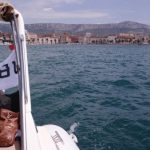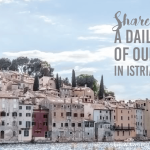On the 19th January 2018, BBC’s writer Kristin Vuković romantically describes the state of ‘fjaka’, a phenomenon very specific to Dalmatia; and while fjaka is all good and well on holiday, to live and work with it is another story entirely.
Yesterday I read Kristin Vuković’s story on her experience of the Dalmatian state of fjaka; it is beautifully written and her words had me drifting down Dubrovnik’s Stradun on a long, hot, lazy summer day (minus the crowds of course), the tingling sensation of fjaka ready to wash over me… Then, like snapping myself out of a daydream, my rational mind very quickly reminded me that fjaka is not always so magical or enjoyable, in fact, it can be the absolute opposite.
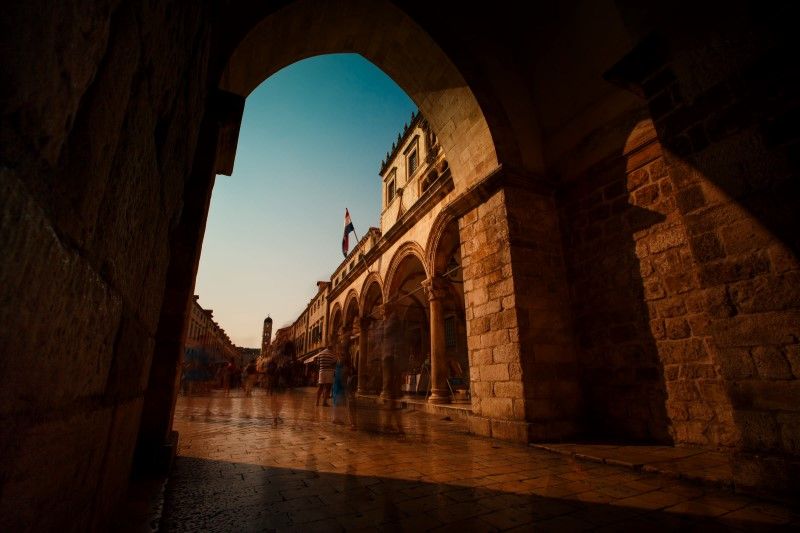
Copyright: Romulic and Stojcic
Kristin begins her story as an ‘impatient New Yorker who always wears a watch [and] was driven crazy when someone was late to an appointment; her story continues and eventually – she learned, understood and finally succumbed to fjaka.
My story on the other hand, works in the other direction. I moved to Croatia (after marrying the Croatian Captain I fell in love with at sea) and didn’t work for my first summer here because of paperwork, language and everything in between. It was an intensely hot summer and my days were a blur of kava, beach, nap, swim, nap… before I would make the gruelling 7-minute walk (which felt like hours) from the beach to my apartment, by the time I had dinner it was already 10 pm.
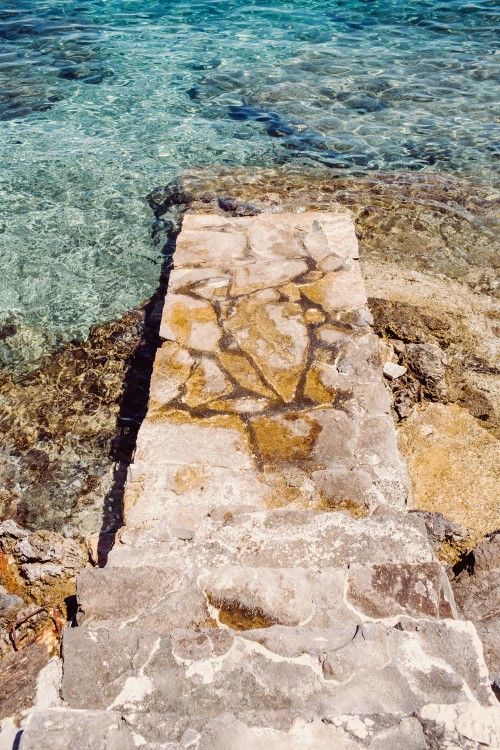
Copyright: Forever Photography
I didn’t know the word fjaka at the time but I felt it to my core. At the beginning, it was a beautiful thing to finally feel ‘switched off’, after years of travel and a stint in London managing one of Gordon Ramsay’s restaurants; chaos, drama and pressure was the last thing I needed. This was it. This is what everyone dreams of right? Sun-drenched days, no time schedule, nowhere to be, nothing to do but simply – BE…
And it was bliss (for a few days)… but as the days became weeks, the peaceful feeling passed and rather than feeling relaxed, I began to feel frustrated and anxious. Every day, fjaka would take me; I didn’t give it permission, I wanted to start being productive, after all, this was my life, I wasn’t on holiday. I would go to bed with plans and ambitions, to get up and exercise, to be productive, to do something – anything! Yet, the summer heat would set in by 9 am and somehow, most likely from habit than anything else, my legs would take me to the water and my days would continue to melt away in this fashion.
I began thinking something was wrong with me – I had never been so lethargic, unmotivated and uninspired in my entire life. Ok, my situation was a little different as I had just moved my life to the other side of the world, I didn’t speak Croatian, had no friends, no job and my husband was away at sea… so you can perhaps understand the anxiety (read about the harsh truths of being an expat here). But worse than all of this, I felt useless. I have had a part-time job since I was 14, I was always working, growing, learning, making plans – and not necessarily in an unhealthy way. So, to come to a point where I felt incapable of moving at a different pace, even if my life depended on it, was awful. It felt like a torture imposed in Greek mythology but instead of food and water being kept just out of reach like the story of Tantalus, I had all the time in the world but couldn’t muster the energy to do anything with it. Rather than feeling the warm embrace of fjaka, I felt smothered, held captive, a prisoner to this apathetic state.
Fast forward a few years and you will still find me living by the Adriatic just outside of Split. For the last few years, I have been working on yachts with my husband as a hostess and there is nothing about my days that resembles fjaka whatsoever – read a ‘day in the life’ here and see what my 19-hour days looked like. My husband is also not a typical Dalmatian, he never stops, I don’t think fjaka has ever had the nerve to get within 100-metres of him, shame this couldn’t be said for the rest of the crew…
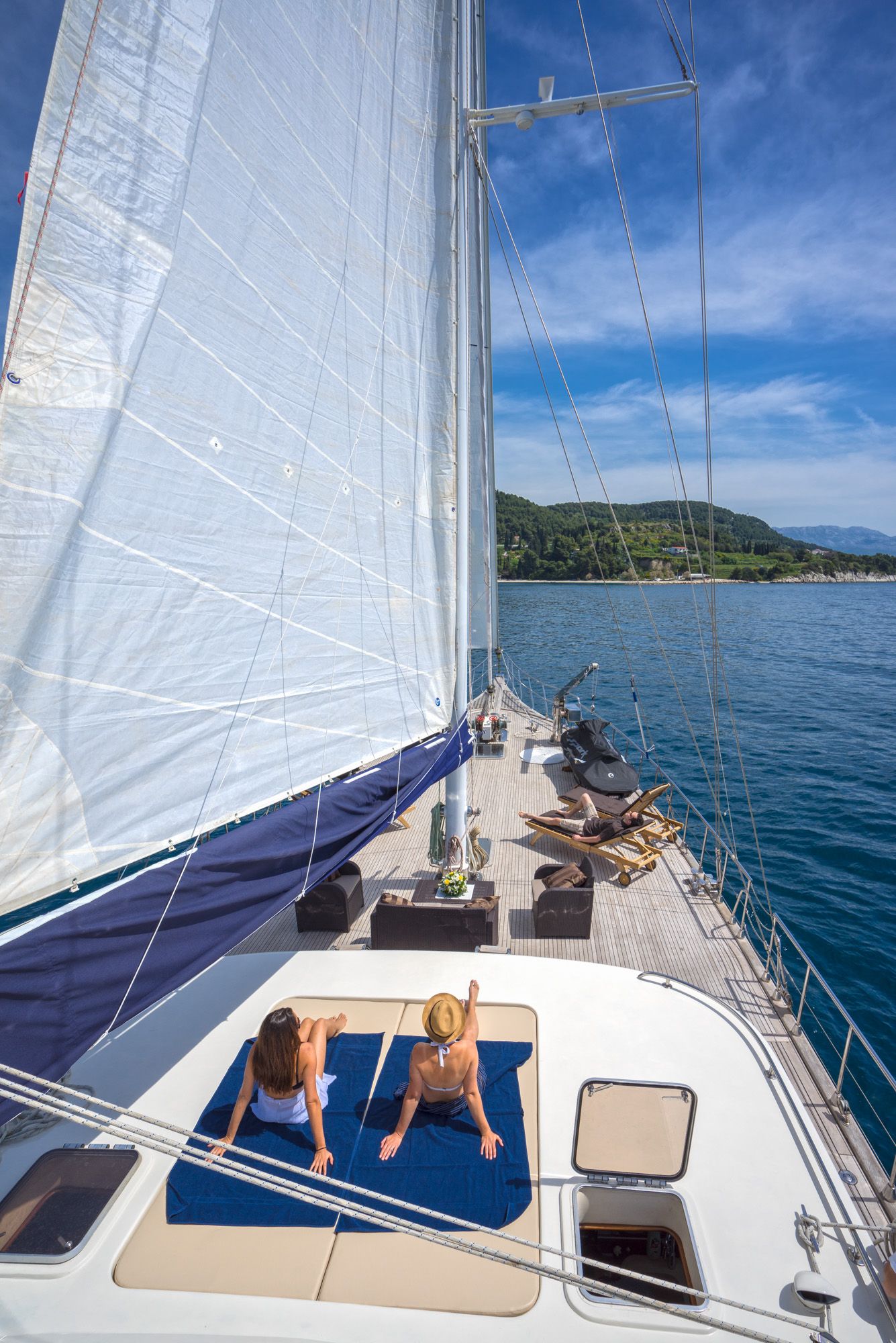
Copyright: Mario Jelavic
One of the deckhands we worked with could be the perfect case study for the Dalmatian fjaka. I remember one specific moment pre-season, we had all been working on the yacht for weeks to get it ready for the season, my husband and I would arrive at 9 am, have 30 – 40 minutes for lunch and continue working until 5 or 6 pm every day.
Then, there was the deckhand, who took hour-long coffee breaks, would find any excuse to strike up a conversation (and stop working) and, like clockwork, every day after lunch he would lie in a stupor for an hour or so. After weeks of witnessing this frustrating ritual, one day, as he lay on the couch, neither asleep nor awake, I finally asked him – what are you doing?!
He barely lifted his head, yet his answer came easily in one word – fjaka.
It frustrated me beyond belief – to watch him, unapologetically lying there, doing nothing while we were supposed to be working. I understood fjaka from my first summer but it never crossed my mind that fjaka is possible when you are on the job. Yet, here was this kid, completely and utterly taken.
Kristina refers to the Croatian poet Jakša Fiamengo who says: “It is like a faint unconsciousness, a state beyond the self or – if you will – deeply inside the self, a special kind of general immobility, drowsiness and numbness, a weariness and indifference towards all important and ancillary needs, a lethargic stupor and general passivity on the journey to overall nothingness. The sense of time becomes lost and its very inertness and languor give the impression of a lightweight instant. More precisely: it’s half somewhere and half nowhere, always somehow in between.”
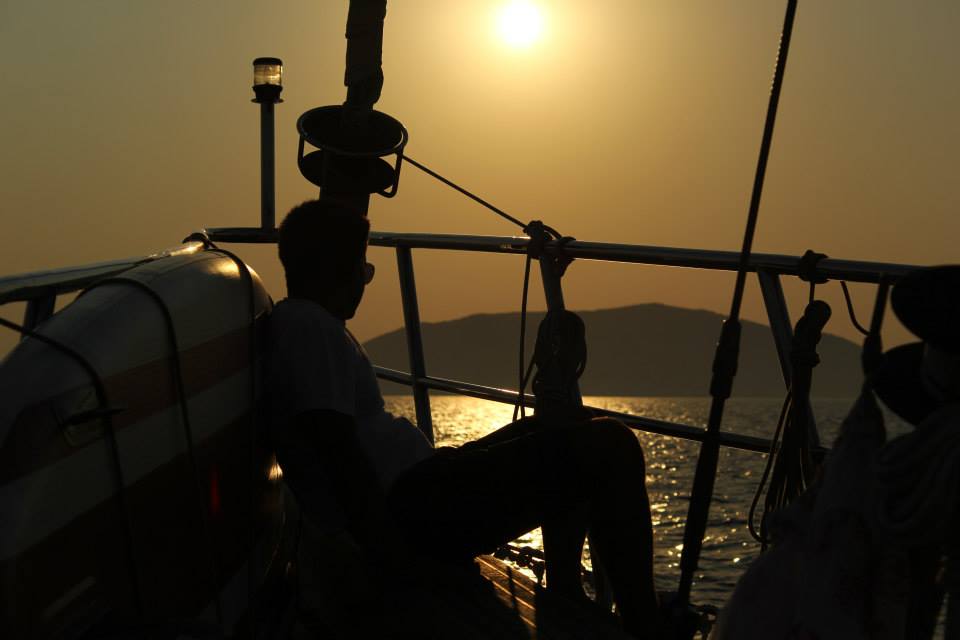
Credit: Tash Pericic, Contemplation or fjaka? Hard to tell.
This could not be a more perfect summary if it tried. This was the deckhand. Half somewhere and half nowhere. His lack of concern or apology about his inability to work frustrated me at the time but also held a weird sense of awe – he genuinely gave zero f**** that he was supposed to be working and wasn’t. While it was infuriating to watch, somewhere deep inside, a tiny part of me was jealous – how good must this feel to simply give in to fjaka without a care in the world for anyone or anything?…
Please don’t take this tale to mean that Dalmatians are lazy, my husband being a case in point along with many Dalmatians I know (I will talk about fjaka vs. work ethic another day). However, sprinkled among the hard-working, you will find those who almost take pride in their ability to: fjaka. Truth be told, this deckhand was a nice guy who didn’t have an ounce of malice in him, he worked well (half the time), so it was impossible to hate him – which is quite possibly how Dalmatians get away with it…
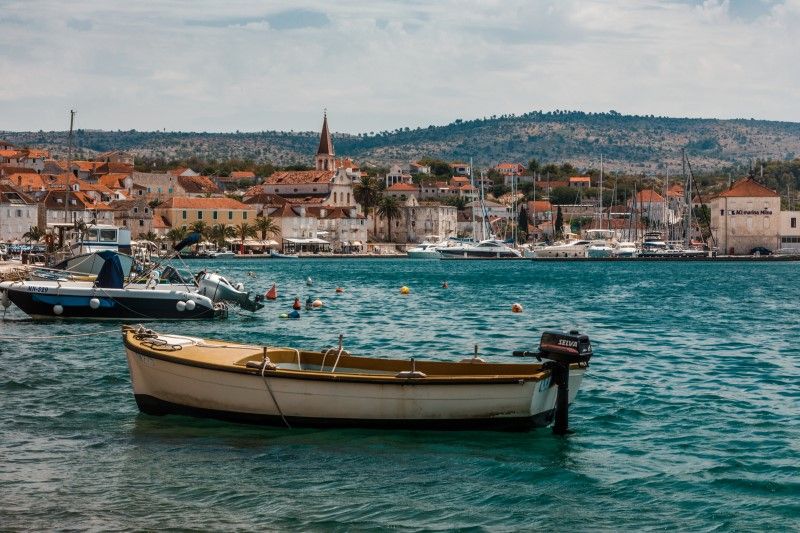
Copyright Romulic and Stojcic
Herein lies the love-hate relationship with living and working in Dalmatia. The lifestyle here is laidback and I don’t think I would return to my London-life for any amount of money but when you want to get shit done, this laidback nature and fjaka state of mind can sometimes crush the spirit! When no one does what they say they are going to do, all with an unapologetic air of – meh this is Dalmatia [get used to it], or simply – fjaka, part of you wants to scream – what is wrong with you?!
I don’t think I will ever embrace this attitude in relation to work (because integrity) but I can see the beauty from a ‘replenishing the soul’ perspective, i.e. small ‘escapes’ every day – a walk in nature, a long coffee, watching the sunset…
So, for those coming to Croatia on holiday, I challenge you to let fjaka take you. Give in to the nothingness, watch the sunlight dance over the turquoise waters of the Adriatic while your to-do lists fade from mind and memory; follow the sun as she dips below the horizon, don’t see the multitude of orange-reds she creates in her wake but rather feel them to the core of your being. Be here and nowhere. At some stage in the future, this feeling of presence and nothingness will be a moment in time you can nestle back into when you need to escape the chaos of your day-to-day life. Simply turn your mind to Dalmatia and repeat after me – fjaka.
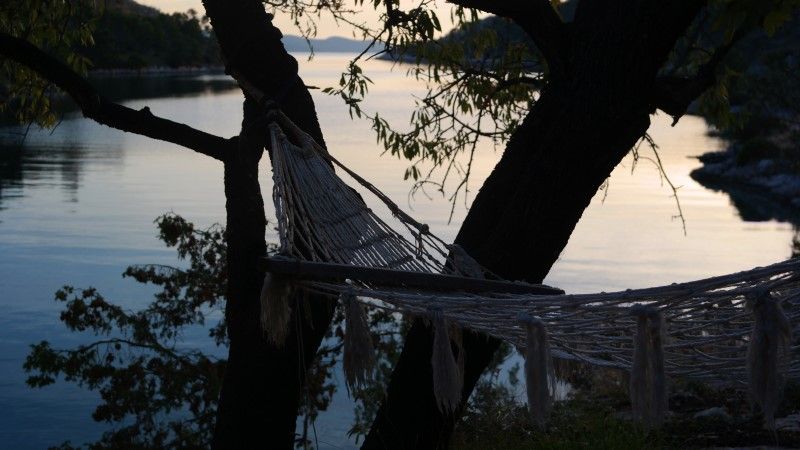
Copyright: Tash Pericic
Read the full BBC article here.

